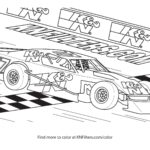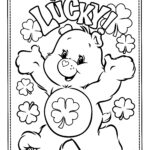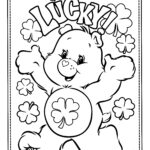The administrative and executive team responsible for the baseball operations of the San Francisco Giants is the core of this discussion. This group encompasses individuals in leadership roles such as the general manager, assistant general managers, scouting directors, and player development staff. Their collective decisions shape the roster construction, player acquisitions, and overall strategic direction of the team.
The efficacy of this team is pivotal to the success of the franchise. Strategic planning in player development, adeptness in trades and free-agent signings, and insightful scouting contribute significantly to competitive performance. Historically, strong leadership in this area has translated to periods of sustained winning and championship contention, while missteps can lead to prolonged periods of rebuilding.
The following sections will delve into specific aspects of their organizational structure, analyze their decision-making processes, and evaluate the impact of their actions on the team’s on-field performance, recent transactions, and future prospects.
1. Roster Construction
Roster construction is a fundamental responsibility of the San Francisco Giants’ baseball operations department. It involves the strategic assembly of players to form a competitive team, balancing current performance with long-term organizational goals.
-
Player Acquisition Strategies
This facet encompasses methods for acquiring players, including drafting amateur talent, trading with other teams, and signing free agents. The front office must evaluate the strengths and weaknesses of each player, their projected future performance, and their fit within the team’s existing structure. Failure to do so may result in costly contracts.
-
Salary Cap Management
Major League Baseball’s competitive balance tax system necessitates careful management of team payroll. The front office must balance the desire to acquire top-tier talent with the financial constraints imposed by the tax threshold. Overspending can lead to penalties, while underspending may hinder the team’s ability to compete.
-
Development Pipeline Integration
Effectively integrating prospects from the minor league system into the major league roster is critical for sustained success. The front office must assess when prospects are ready for promotion, ensuring they have the necessary skills and experience to contribute at the highest level. Premature or delayed promotions can negatively impact both the player’s development and the team’s performance.
-
Data Analytics and Scouting
Modern roster construction heavily relies on data analytics to evaluate player performance and project future potential. The front office integrates statistical analysis with traditional scouting reports to make informed decisions about player acquisitions and roster composition. A data-driven approach is necessary for making sound judgments.
In conclusion, strategic decisions regarding player acquisitions, financial management, prospect development, and data analysis drive roster construction within the San Francisco Giants organization. The effectiveness of these areas depends on the team’s success and competitive viability.
2. Player Development
Player development constitutes a critical function overseen by the San Francisco Giants’ baseball operations department. This process encompasses the identification, recruitment, training, and advancement of players within the organization, from the amateur levels through the minor league system, with the ultimate goal of contributing to the major league roster.
-
Scouting and Recruitment
The initial phase involves scouting potential players at the amateur level, including high school and college prospects, as well as international talent. Scouts evaluate players based on a range of factors including physical abilities, baseball skills, and intangible qualities such as work ethic and coachability. The baseball operations team uses these evaluations to inform draft selections and international signings.
-
Minor League System Management
The minor league system serves as a training ground for developing players. The front office determines the organizational structure of the minor league affiliates, staffing them with coaches, trainers, and support personnel. These professionals implement training programs designed to improve players’ skills, knowledge of the game, and physical conditioning. Player progress is constantly monitored and evaluated.
-
Coaching and Instruction
Qualified coaching is vital for player development. The front office is responsible for hiring and overseeing a diverse coaching staff with specialized expertise in areas such as hitting, pitching, fielding, and base running. Coaches implement individualized development plans for each player, providing feedback and guidance to optimize their performance. The staff also ensure that players follow standard protocol.
-
Data-Driven Analysis and Technology Integration
The baseball operations team increasingly employs data analytics and technology to enhance player development. This includes using tools to track player performance metrics, analyze biomechanics, and create personalized training programs. The integration of data and technology is designed to provide players with objective feedback and to identify areas for improvement. This data provides a detailed profile on each player to provide the correct coaching staff to increase output.
Effective player development, managed by the baseball operations personnel, is crucial for sustained organizational success. A robust farm system provides a pipeline of talent to supplement the major league roster, reducing the reliance on costly free-agent acquisitions and promoting financial sustainability. The success of player development directly impacts the team’s competitiveness and long-term prospects.
3. Strategic Acquisitions
Strategic acquisitions, encompassing trades and free-agent signings, represent a crucial responsibility of the San Francisco Giants’ baseball operations leadership. These maneuvers aim to augment the team’s capabilities and address specific roster deficiencies, directly impacting the team’s competitiveness.
-
Trade Evaluation and Execution
The baseball operations group must meticulously assess potential trade partners, evaluating player talent, contract implications, and organizational needs. Successful trades often involve identifying undervalued assets and projecting future performance accurately. Poorly executed trades can deplete the farm system and hinder long-term prospects. An example would be acquiring a needed relief pitcher, but only in exchange for a star prospect.
-
Free Agent Market Analysis
Navigating the free agent market requires careful consideration of player performance, age, injury history, and contract demands. The front office must weigh the potential benefits of signing a particular free agent against the financial implications and potential impact on roster flexibility. Overpaying for past performance can encumber the team’s financial resources for years to come.
-
Targeting Specific Needs
Strategic acquisitions should address specific weaknesses in the team’s roster. This might involve acquiring a power-hitting outfielder, a reliable starting pitcher, or a defensively sound infielder. Identifying and filling these needs can significantly improve the team’s overall performance. Acquiring the wrong type of player is detrimental to any team.
-
Long-Term Organizational Impact
Acquisitions can have far-reaching effects on the organization beyond immediate on-field performance. They can influence team chemistry, fan engagement, and the development of young players. The front office must consider these broader implications when making acquisition decisions, as it can change the organization for years to come.
Effective strategic acquisitions, managed by the baseball operations personnel, are essential for the San Francisco Giants to maintain competitiveness and achieve long-term success. Thoughtful evaluation of talent, financial prudence, and a clear understanding of organizational needs are paramount in this endeavor.
San Francisco Giants Front Office
The effectiveness of a major league baseball organization, exemplified here by the San Francisco Giants, hinges on the strategic acumen and operational efficiency of the baseball operations leadership. The following considerations are critical for any front office seeking sustained success.
Data-Driven Decision Making Implement advanced statistical analysis in all facets of player evaluation, roster construction, and strategic planning. This minimizes reliance on subjective opinions and enables more informed decisions. As an example, consider using advanced metrics such as WAR (Wins Above Replacement) and OPS (On-Base Plus Slugging) to assess player value objectively.
Proactive Talent Development Invest heavily in scouting and player development infrastructure. A robust farm system provides a sustainable pipeline of talent, reducing the reliance on expensive free-agent acquisitions. Continuously monitor and adapt training programs to optimize player performance.
Strategic Risk Assessment Evaluate the potential risks and rewards associated with every transaction, including trades and free-agent signings. Develop contingency plans to mitigate potential negative consequences. Consider worst-case scenarios and their potential impact on the organization’s long-term goals.
Clear Communication and Collaboration Foster a culture of open communication and collaboration among all departments, including scouting, player development, analytics, and coaching. Effective communication ensures that all stakeholders are aligned with the organization’s overall strategy. Regular meetings and feedback sessions are essential.
Financial Prudence Adhere to a disciplined financial approach, carefully managing team payroll and avoiding overspending on inflated contracts. Prioritize long-term financial stability over short-term gains. Develop a sustainable financial model that supports both on-field competitiveness and organizational growth.
Adaptability and Innovation Embrace innovation and adapt to the ever-changing landscape of baseball. Continuously explore new strategies, technologies, and approaches to gain a competitive edge. Stay informed about industry trends and best practices.
Long-Term Vision Maintain a long-term strategic vision, focusing on building a sustainable winning culture rather than solely pursuing immediate gratification. Emphasize player development, organizational stability, and a commitment to continuous improvement. Building through the draft and player development has proven to yield results over decades.
The adherence to these principles positions the baseball operations leadership, or “san francisco giants front office”, to make well informed strategic decisions to achieve sustained on-field success.
San Francisco Giants Front Office
This exploration has detailed the multifaceted responsibilities and crucial functions of the San Francisco Giants baseball operations leadership. From strategic roster construction and meticulous player development to decisive strategic acquisitions, this team’s actions have shaped the organization’s competitive trajectory. Effective execution in these domains remains paramount for sustained success.
The continued evolution of baseball necessitates ongoing adaptation and innovation. The future competitiveness of the franchise hinges on its ability to leverage data-driven insights, cultivate talent effectively, and make astute strategic decisions, underscoring the enduring significance of sound baseball operations management.









